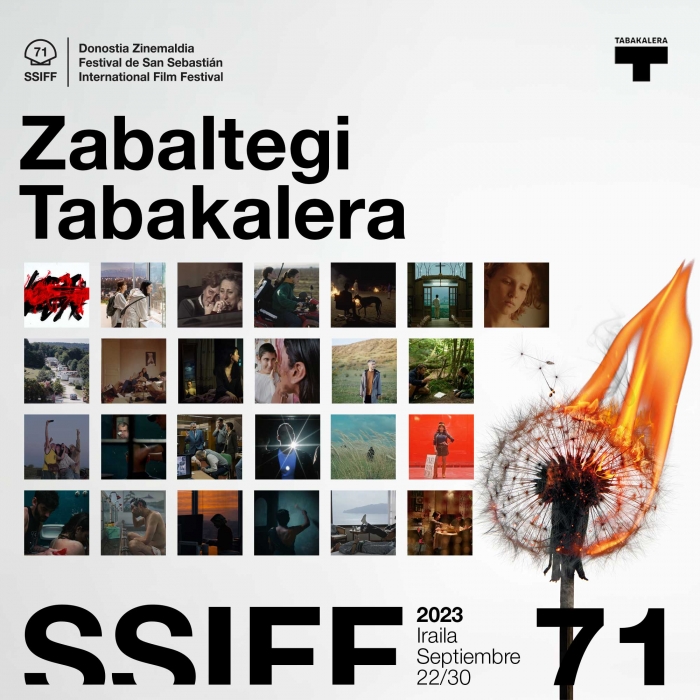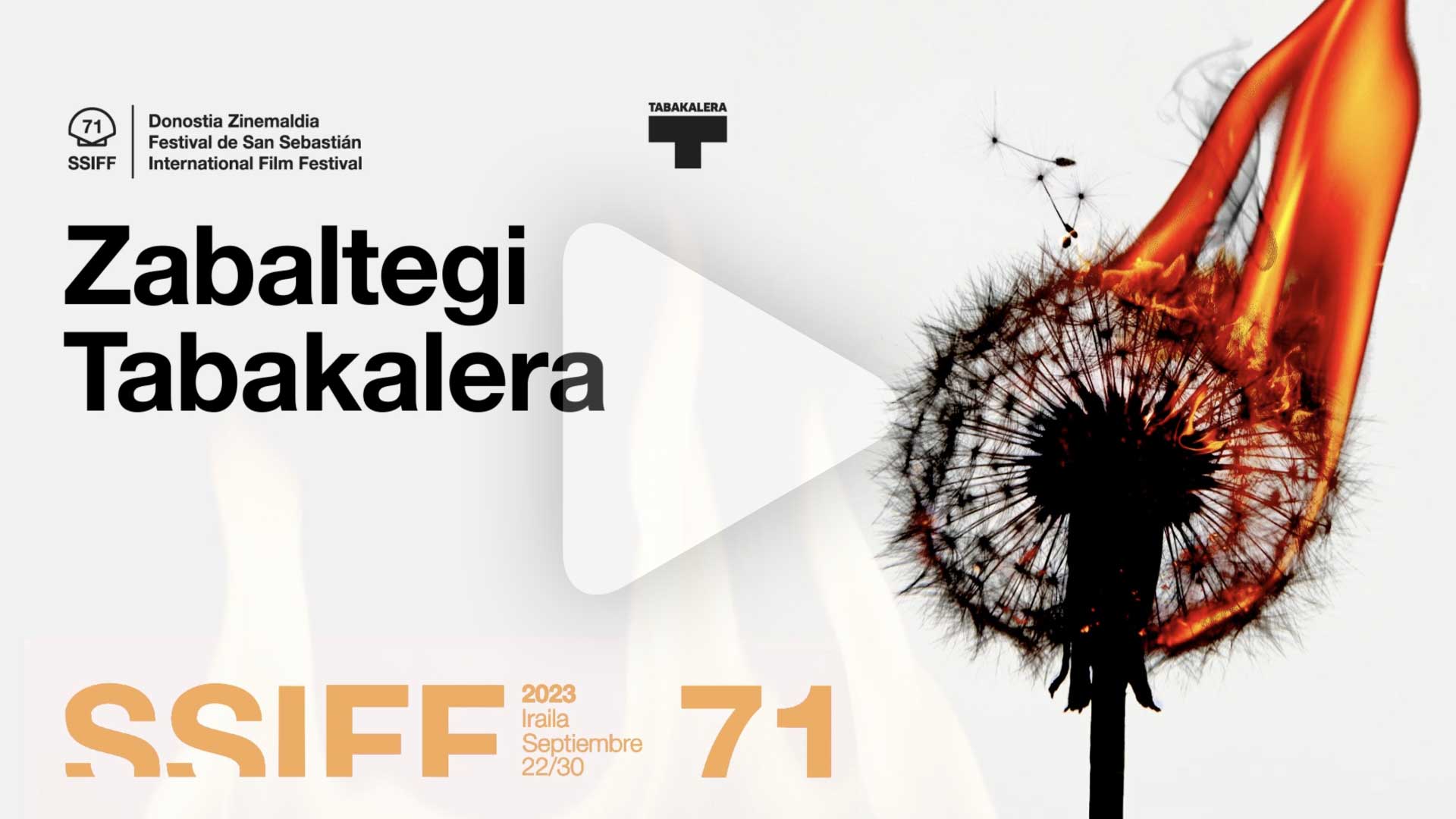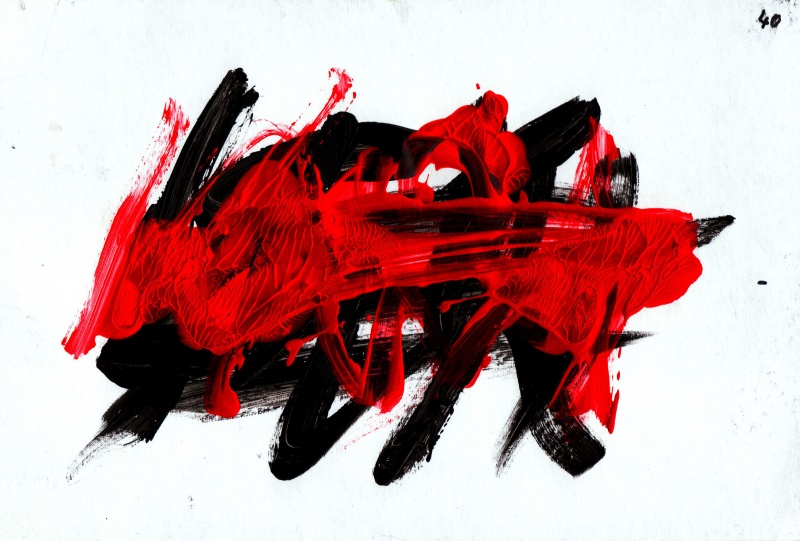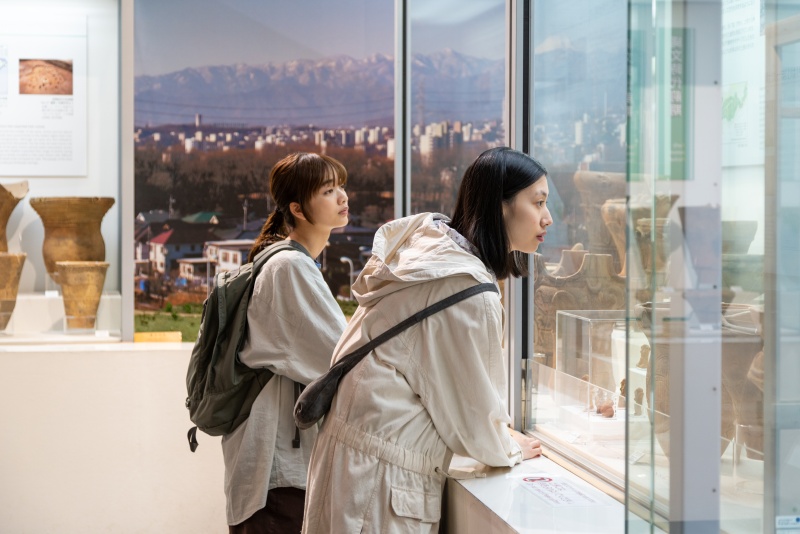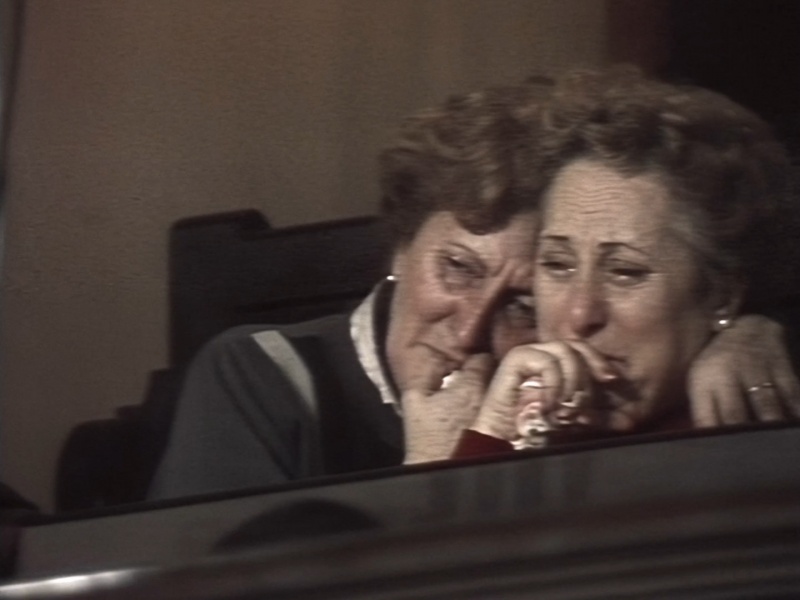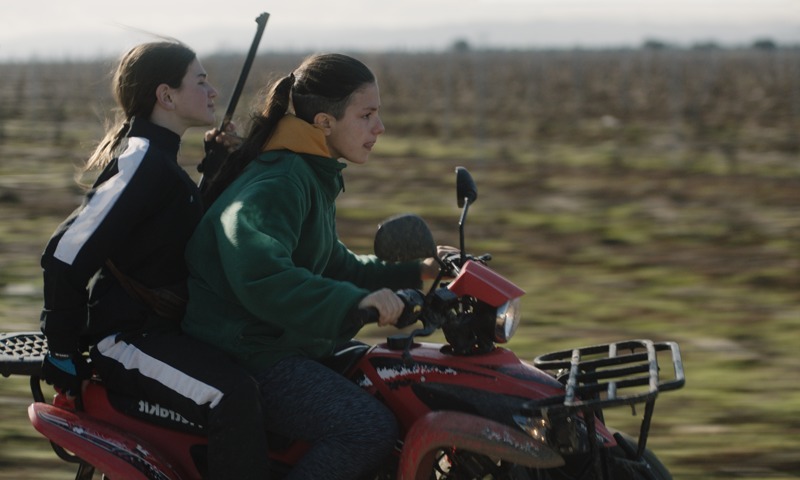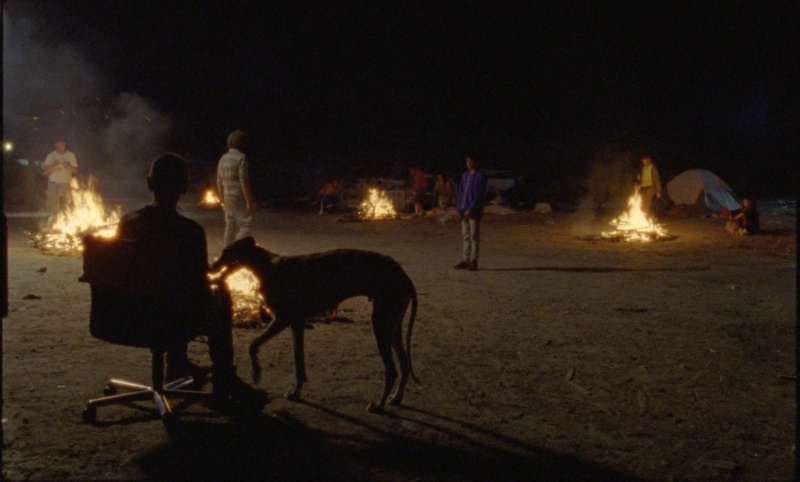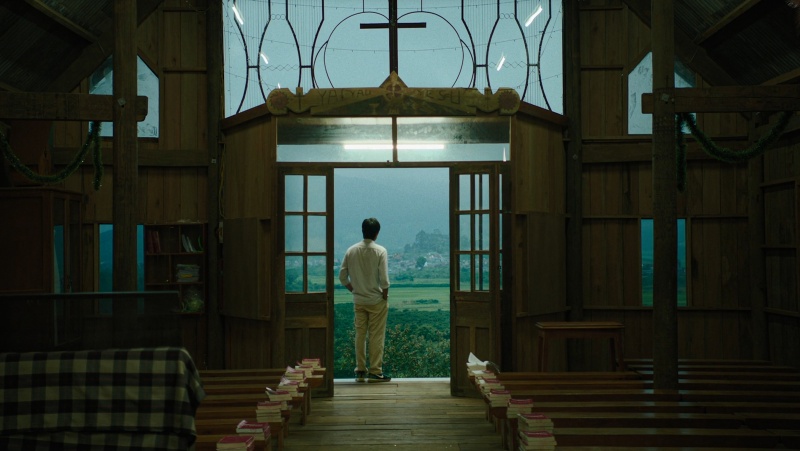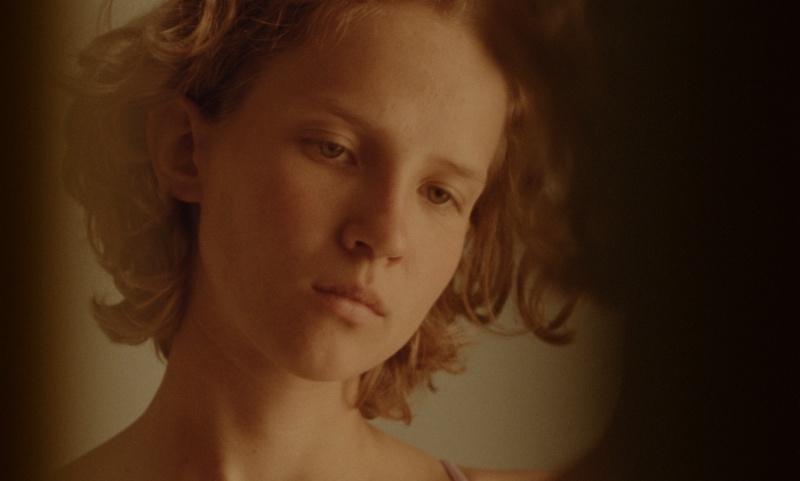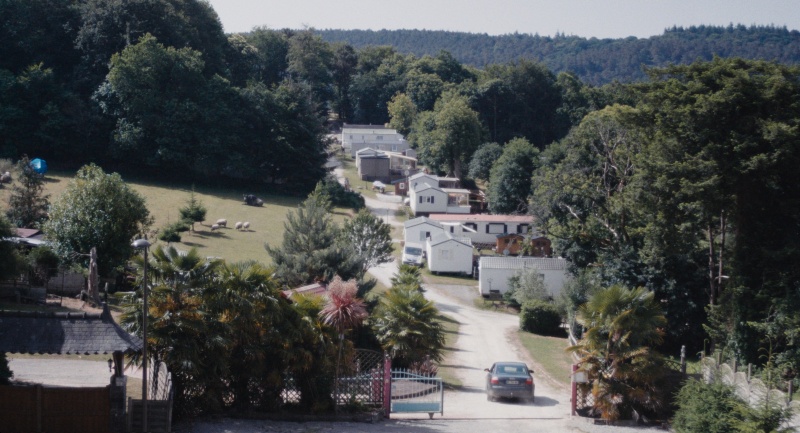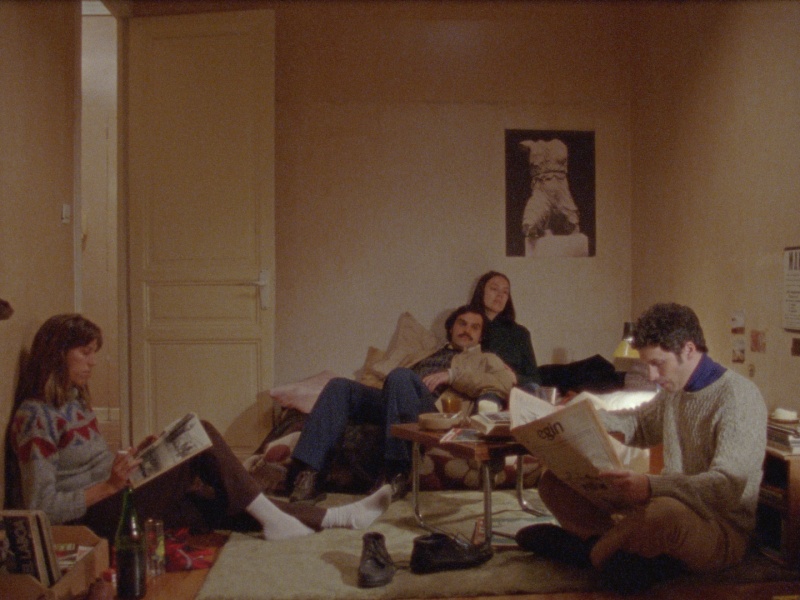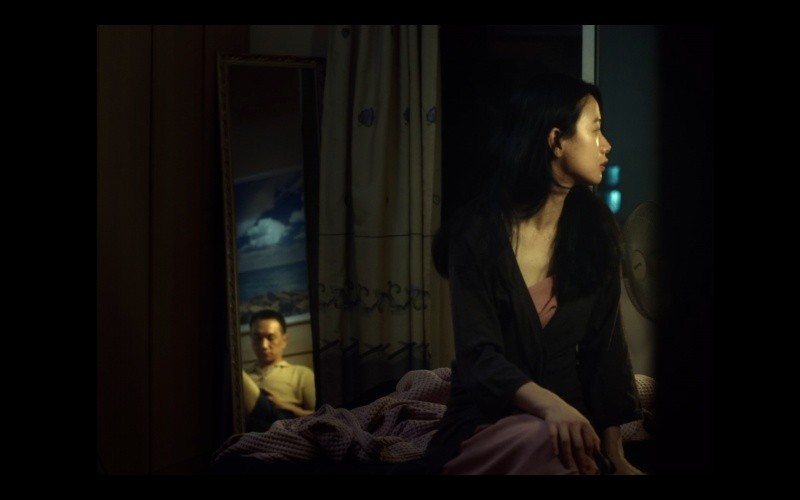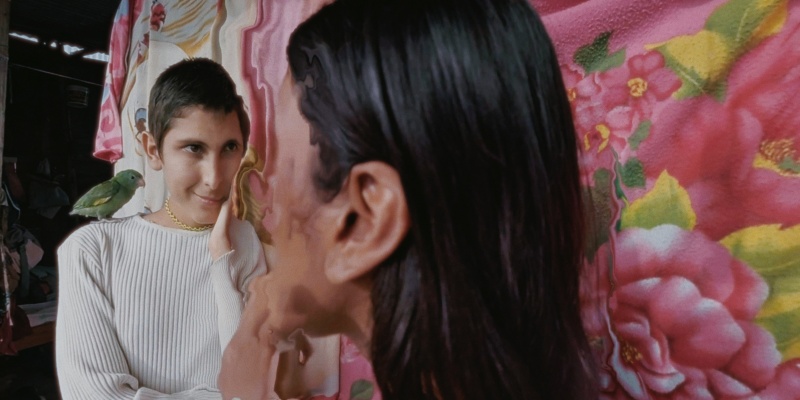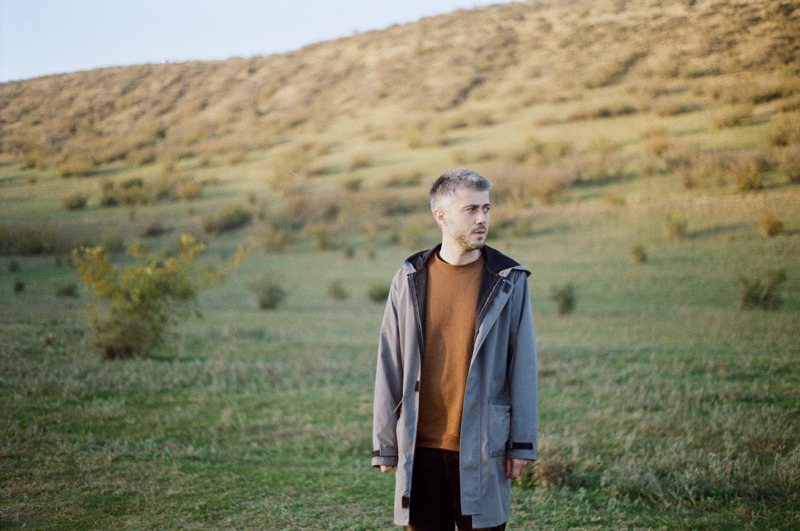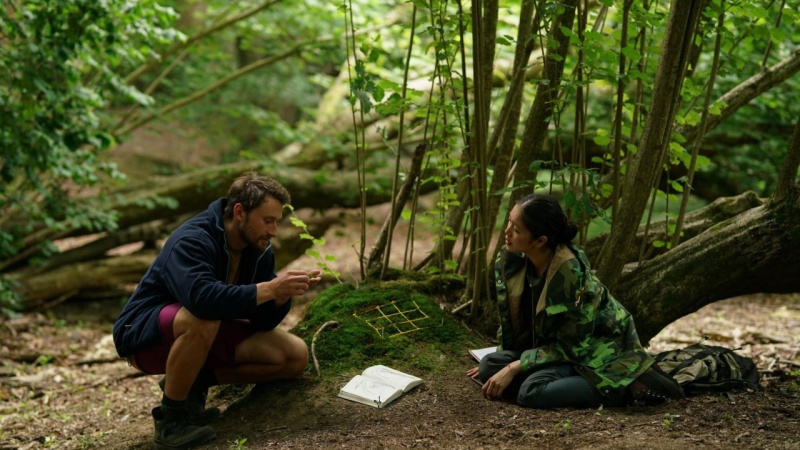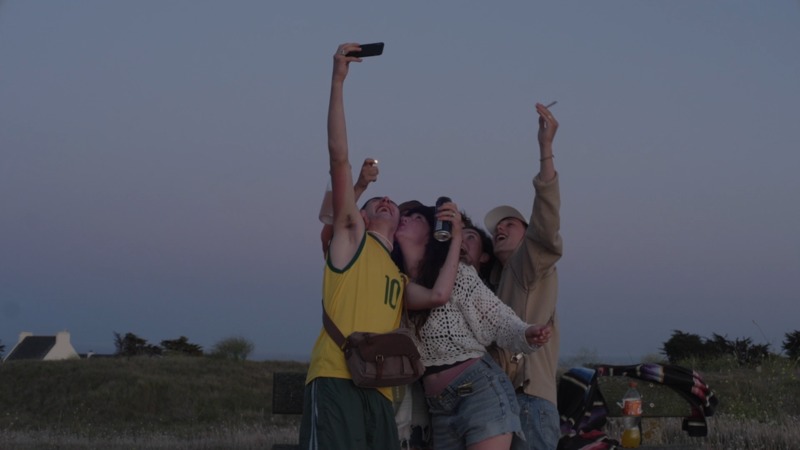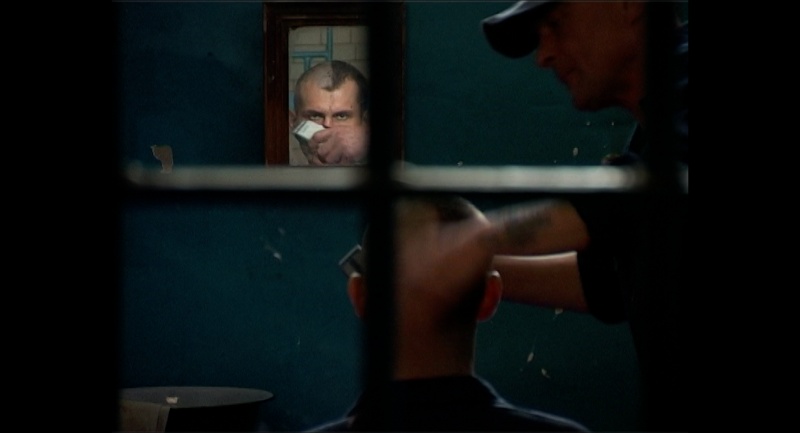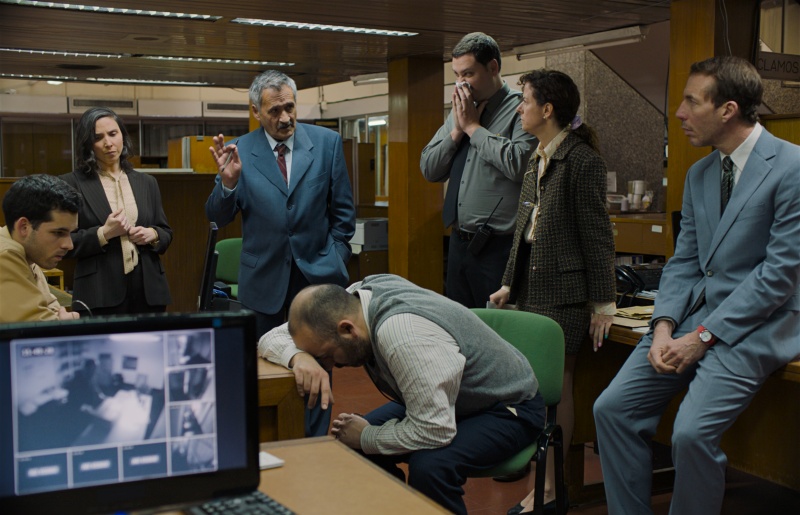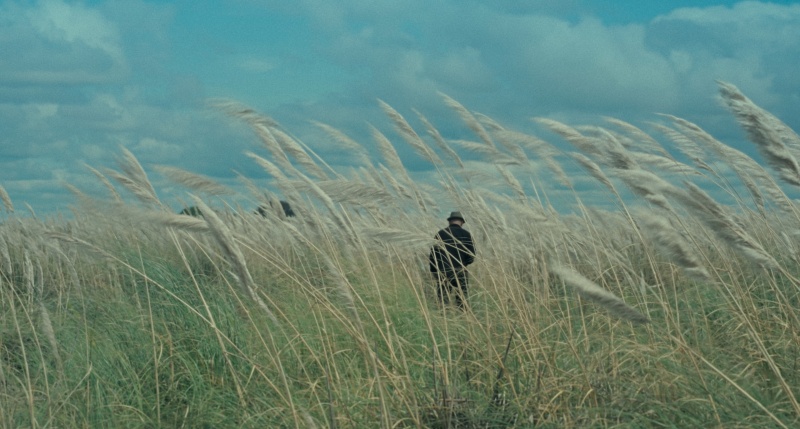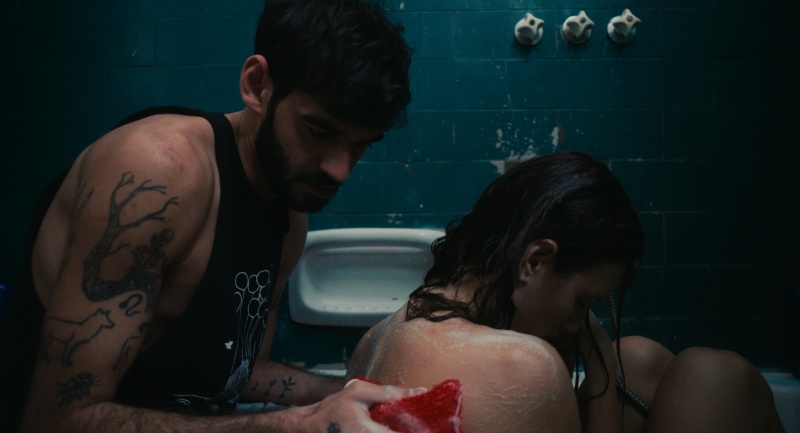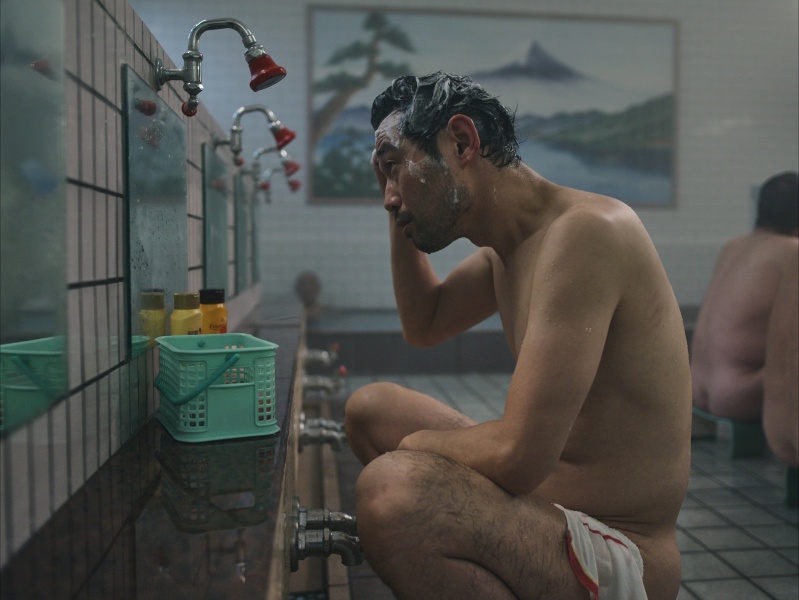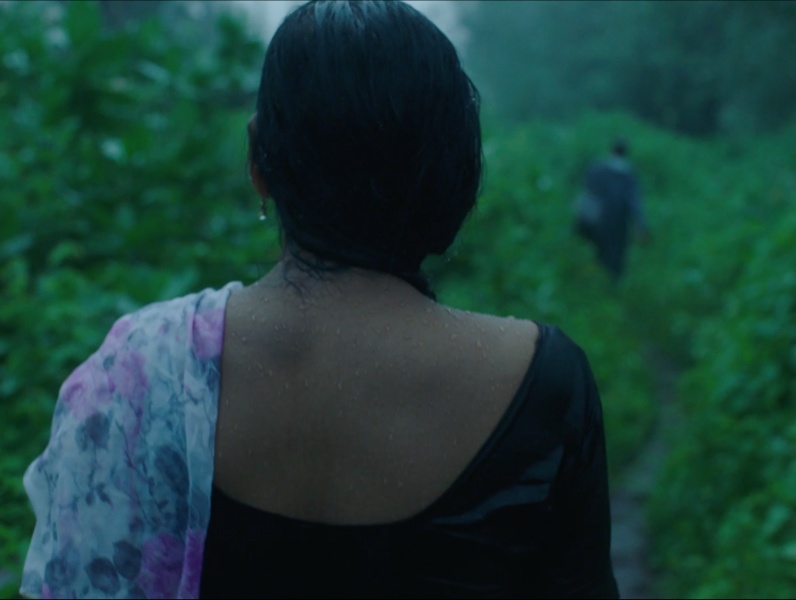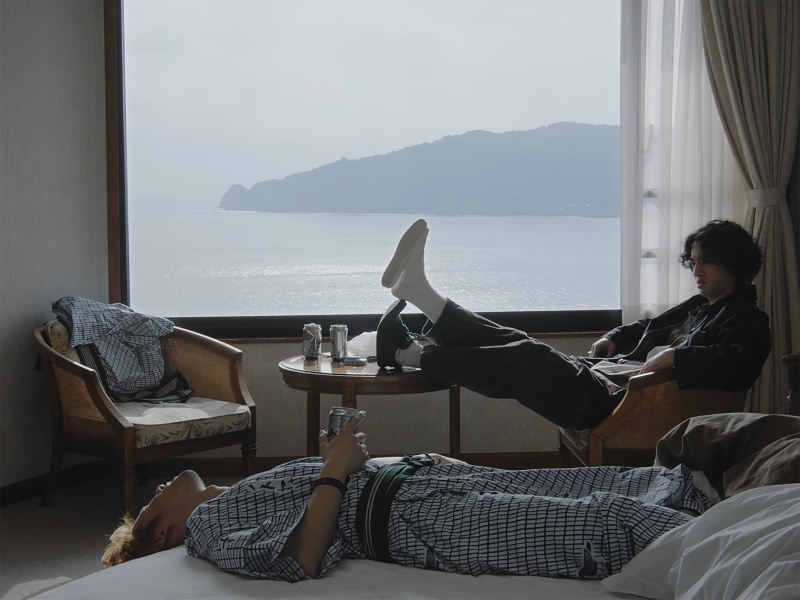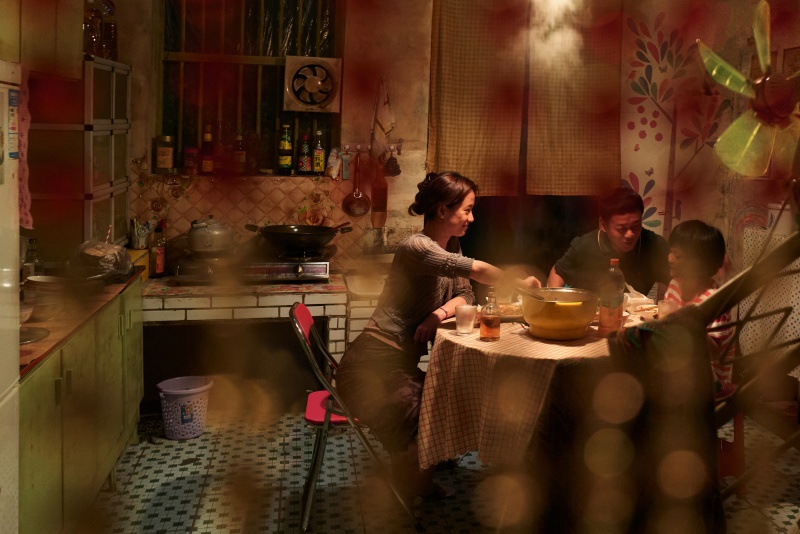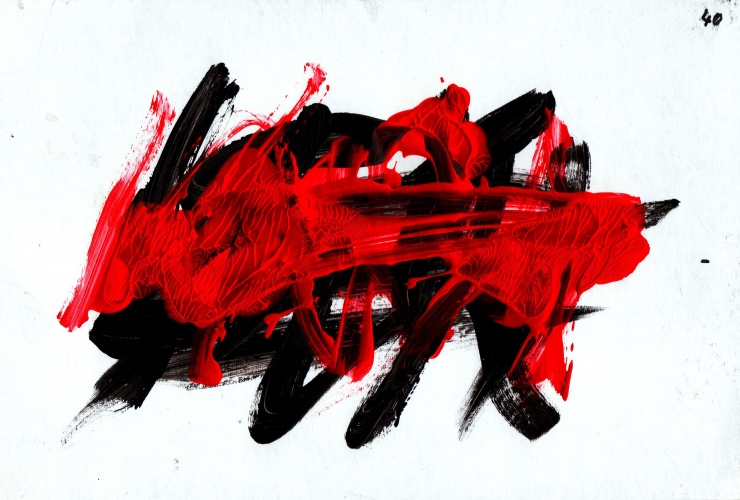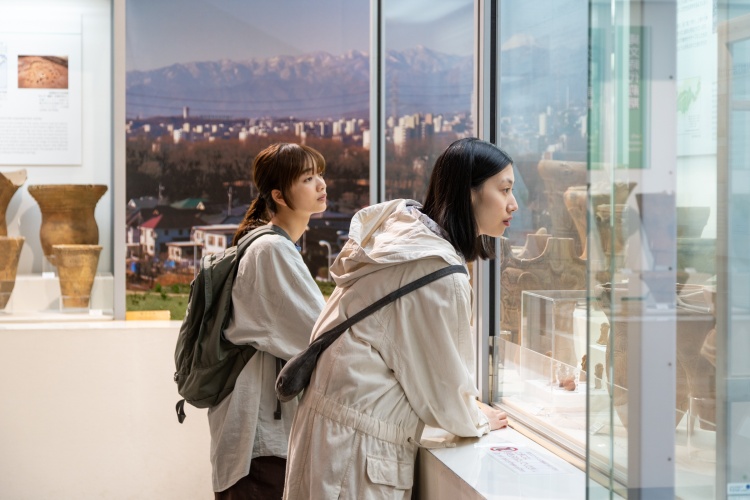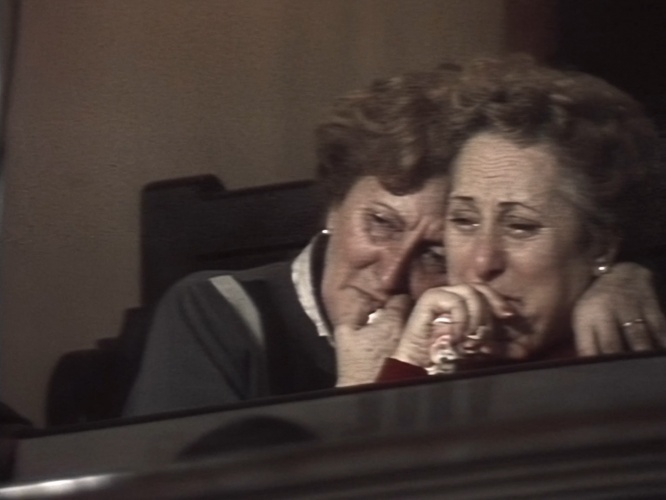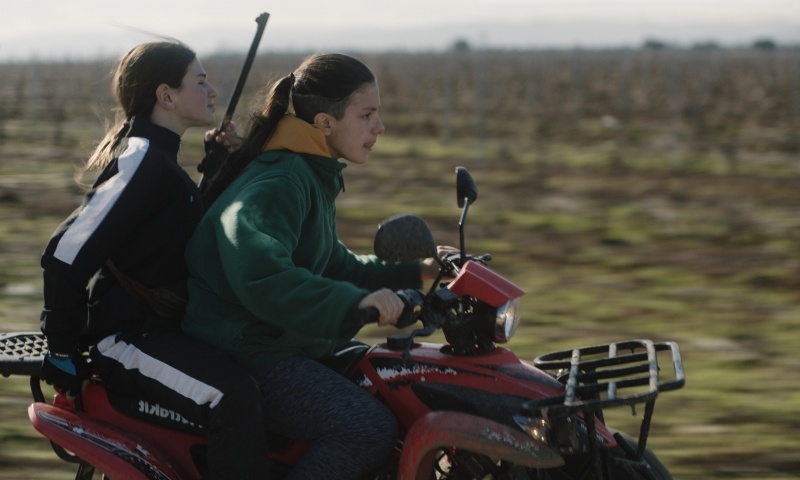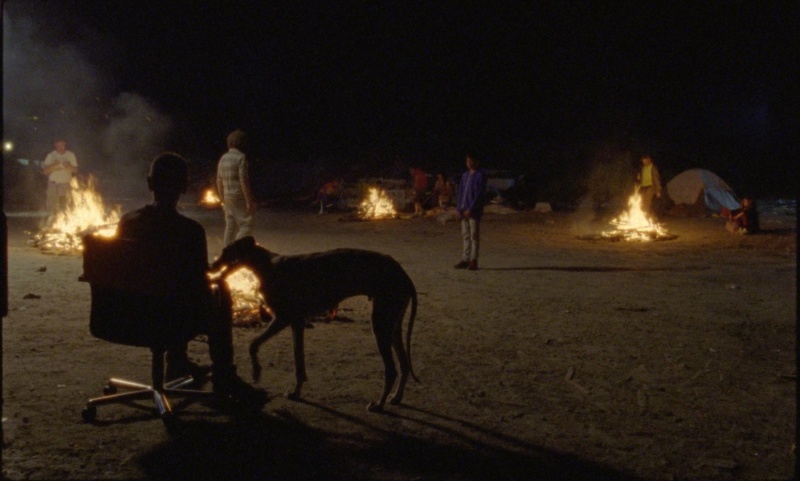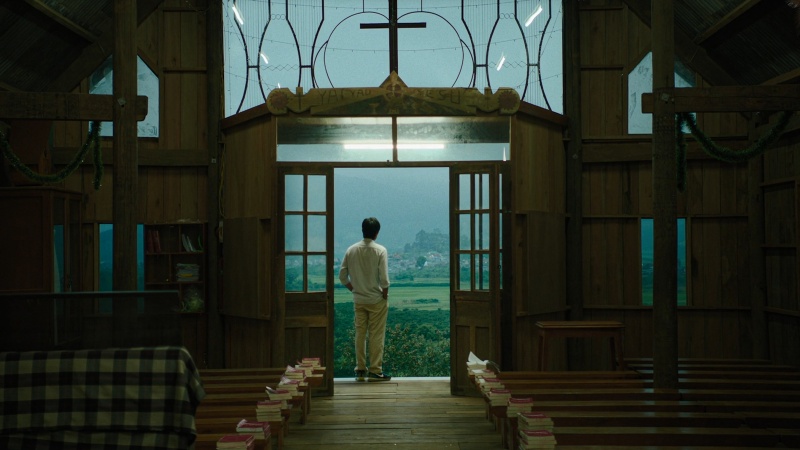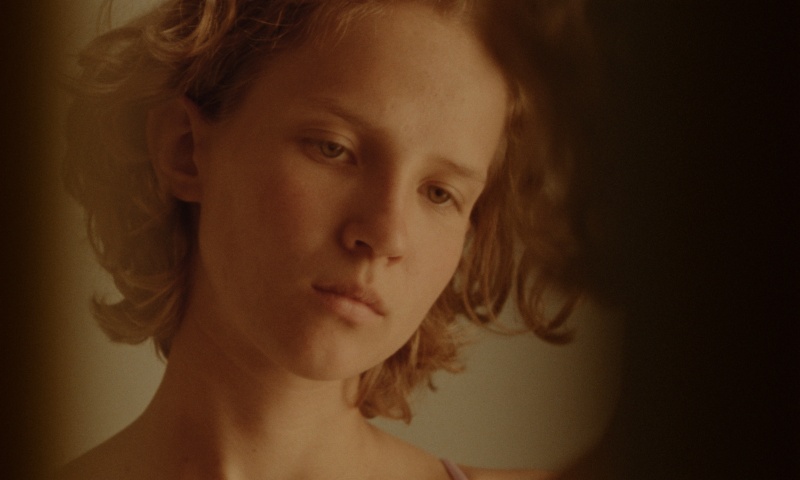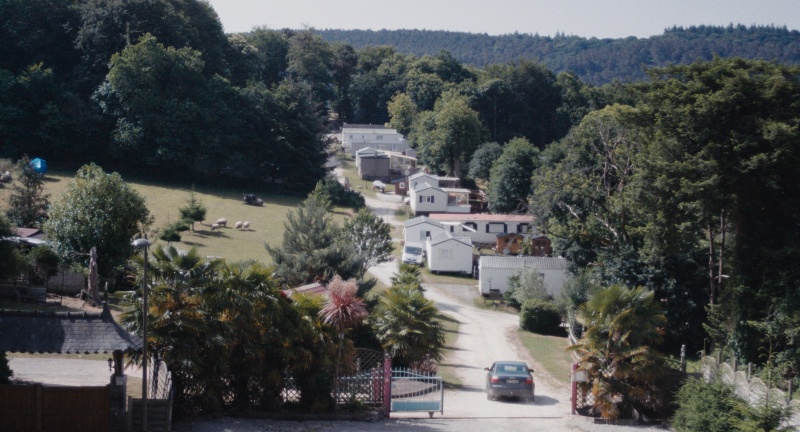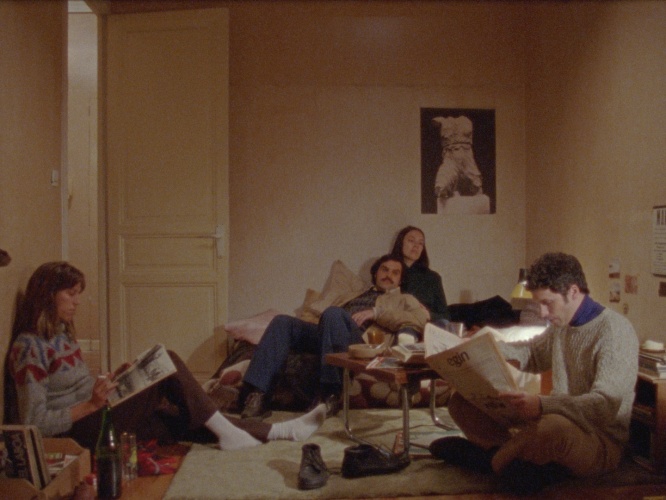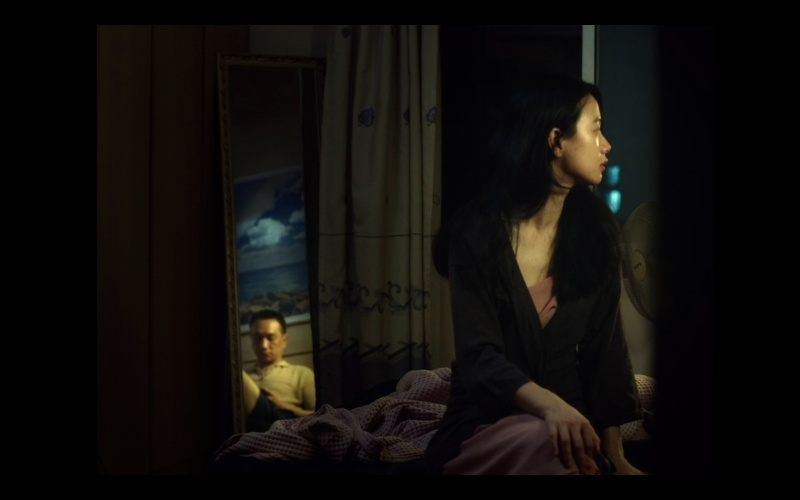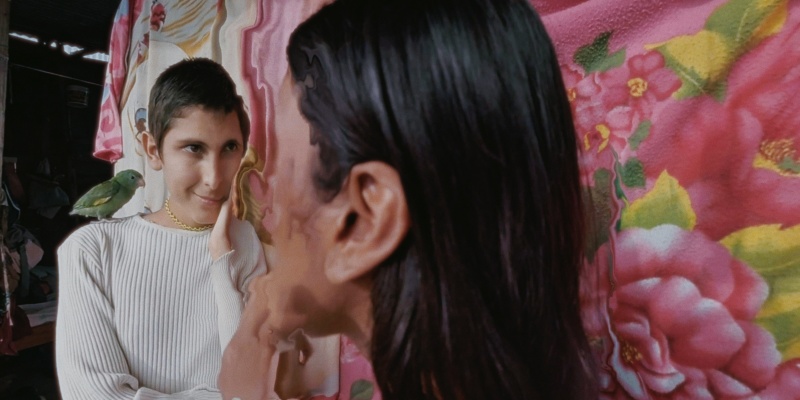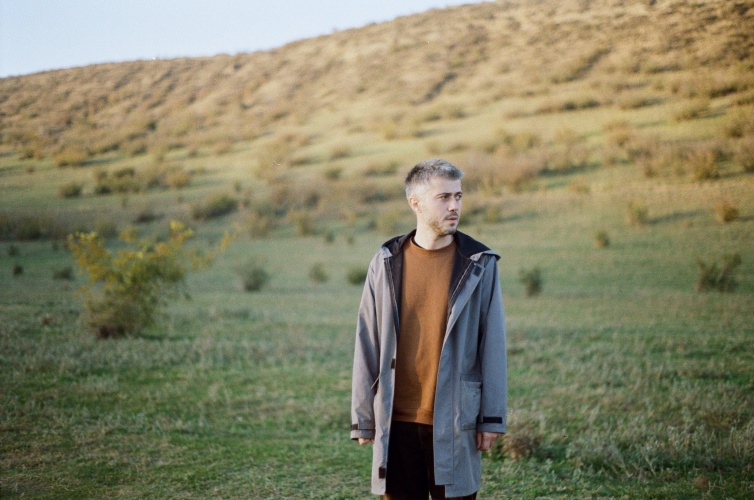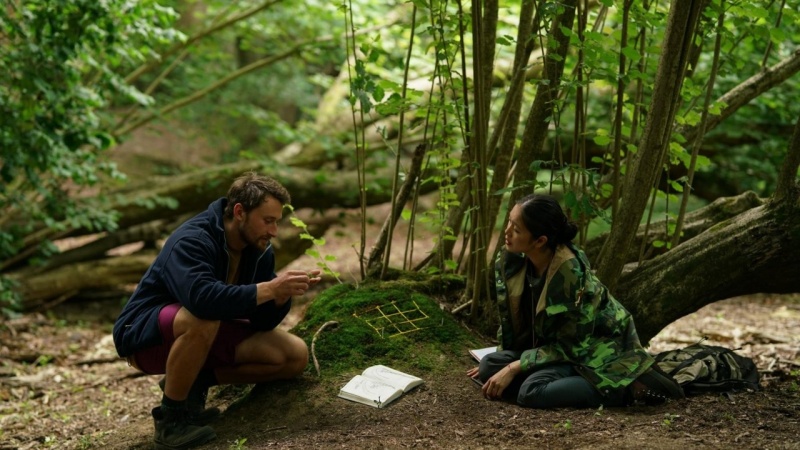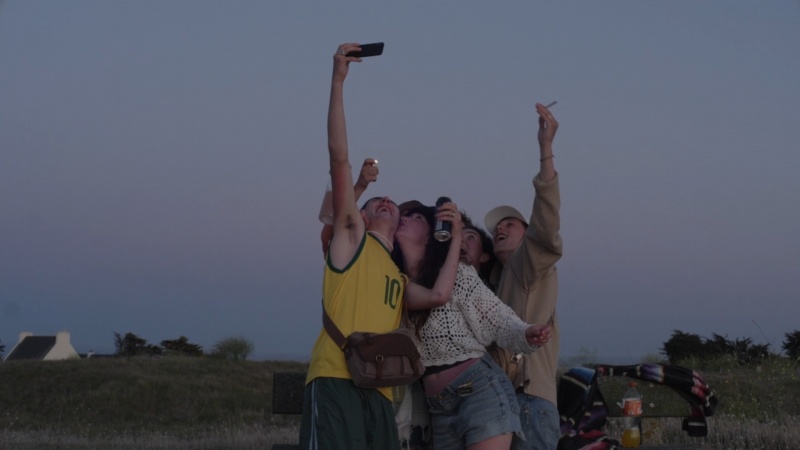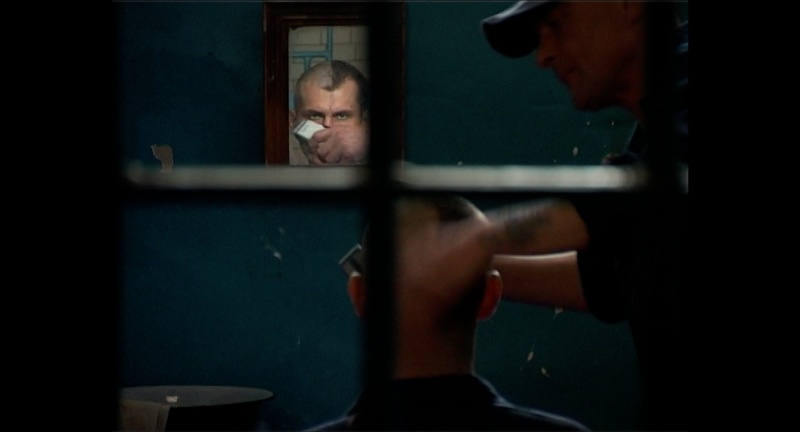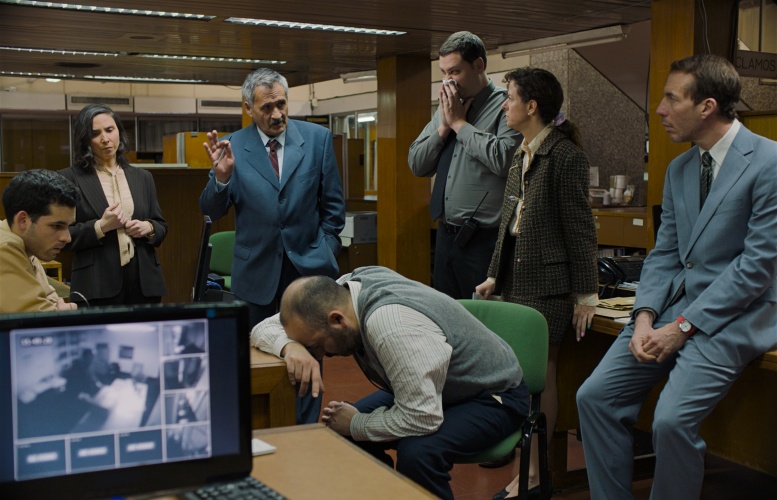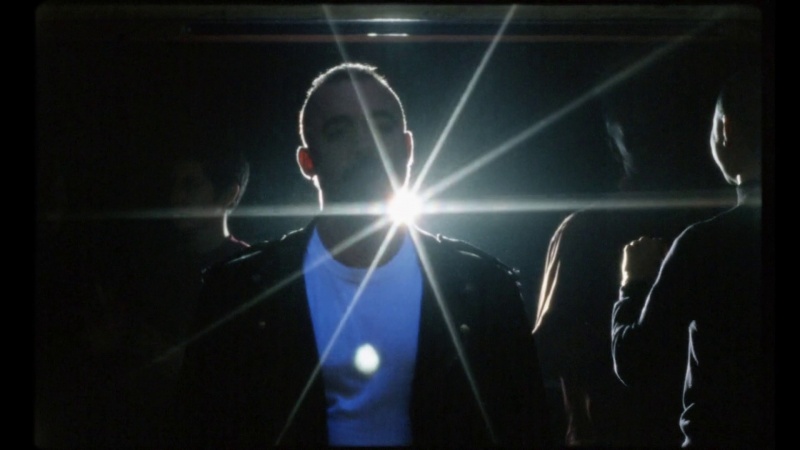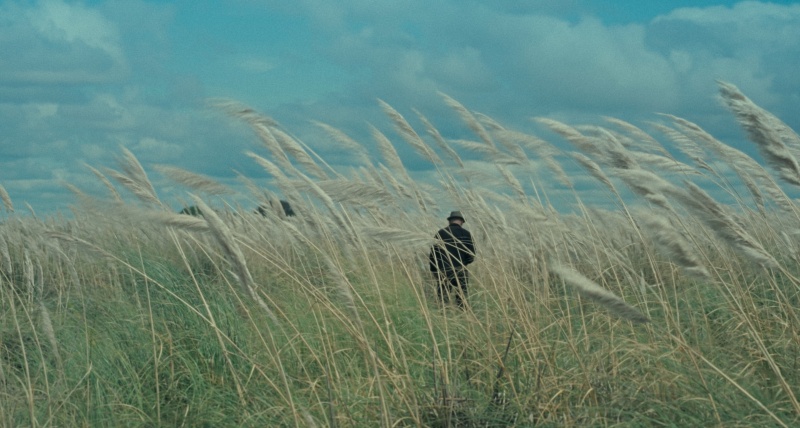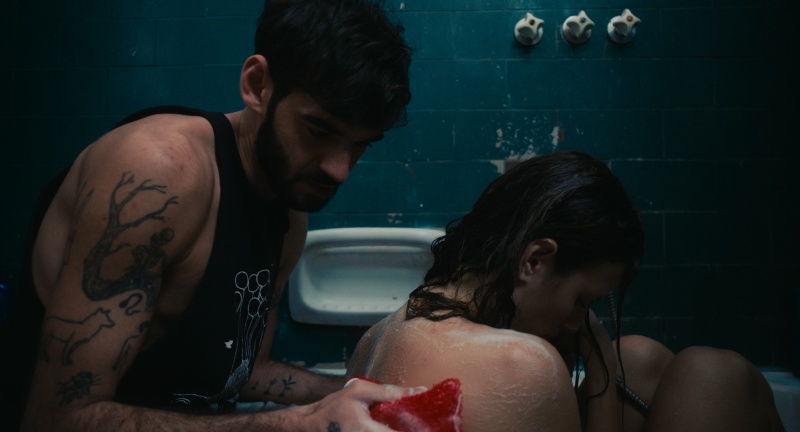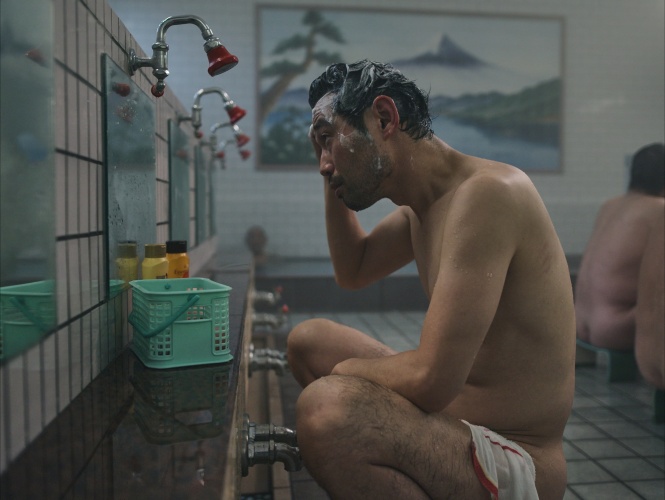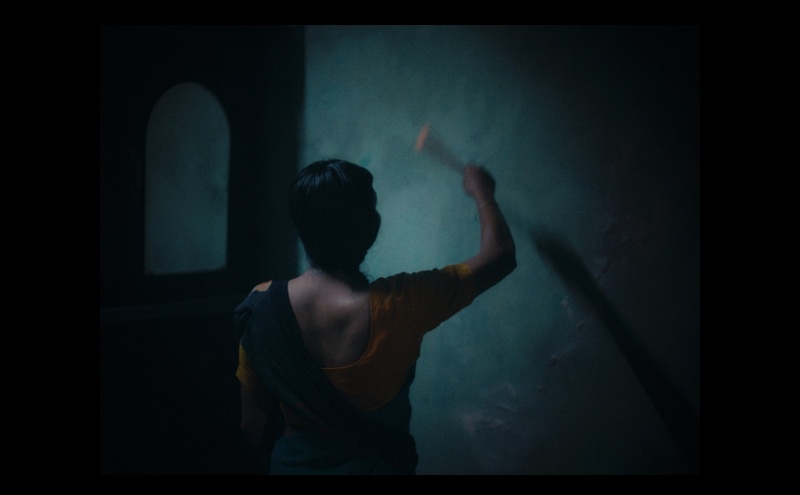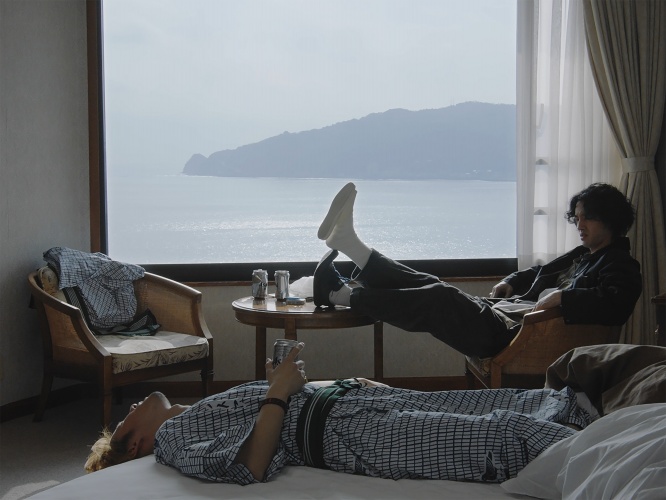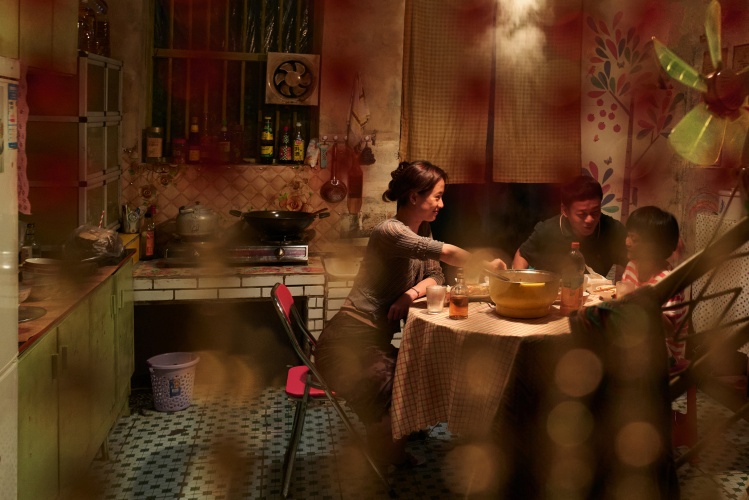The majority of the other titles are feature and short films to have won awards or been programmed at Berlin, Cannes, Locarno and Venice, among other festivals
At San Sebastian Festival’s 71st edition, Zabaltegi-Tabakalera will host a series of works coming in the main from Berlin, Cannes, Locarno and Venice, among other festivals. In the event’s most open competitive selection, where everything goes as far as style and runtime are concerned, Ion de Sosa, Andrés Di Tella, Ashmita Guha Neogi, Kohei Igarashi and Rati Oneli will show their latest works as world premieres alongside moviemakers such as Paul B. Preciado, Delphine Girard, Jean-Luc Godard, Yui Kiyohara, Damien Manivel, Rodrigo Moreno, Éléonore Saintagnan and Eduardo Williams. The selection will have the participation of 25 titles: fifteen features, eight shorts and two medium-length films.
Zabaltegi-Tabakalera will open with Subete no Yoru wo Omoidasu / Remembering Every Night, directed by the filmmaker Yui Kiyohara (Tokyo, Japan. 1982), who participated in the Berlinale’s Forum section with her debut, Our House (2018). This year, in the same section, she showed her second full-length film, a study of various female characters. The opening event will also include the showing of a posthumous short film by Jean-Luc Godard (Paris, France. 1930 – Rolle, Switzerland. 2022) premiered at the last Festival de Cannes: Film annonce du film qui n'existera jamais: ‘Drôles de Guerres’ / Trailer of the Film That Will Never Exist: ‘Phony Wars’.
Tasked with closing the section is the documentary-maker Ulises de la Orden (Buenos Aires, Argentina. 1970), who will show El juicio / The Trial, a non-fiction premiered in the Panorama section of the Berlinale bringing a detailed document of the trial against the military juntas of the Argentinian dictatorship in 1985.
Programmed in the official short film competition of the Festival de Cannes, Aunque es de noche / Even Though It's Night is signed by Guillermo García López (Madrid, España. 1985), who sets the film in Sector 6 of La Cañada Real, an illegal settlement on the outskirts of Madrid. His first work, Frágil equilibrio (2016), won the Goya for Best Documentary. This year he also showed another short at the Quinzaines des Cinéastes in Cannes, As gaivotas cortam o céu / Seagulls Cut the Sky, co-directed with Mariana Bártolo.
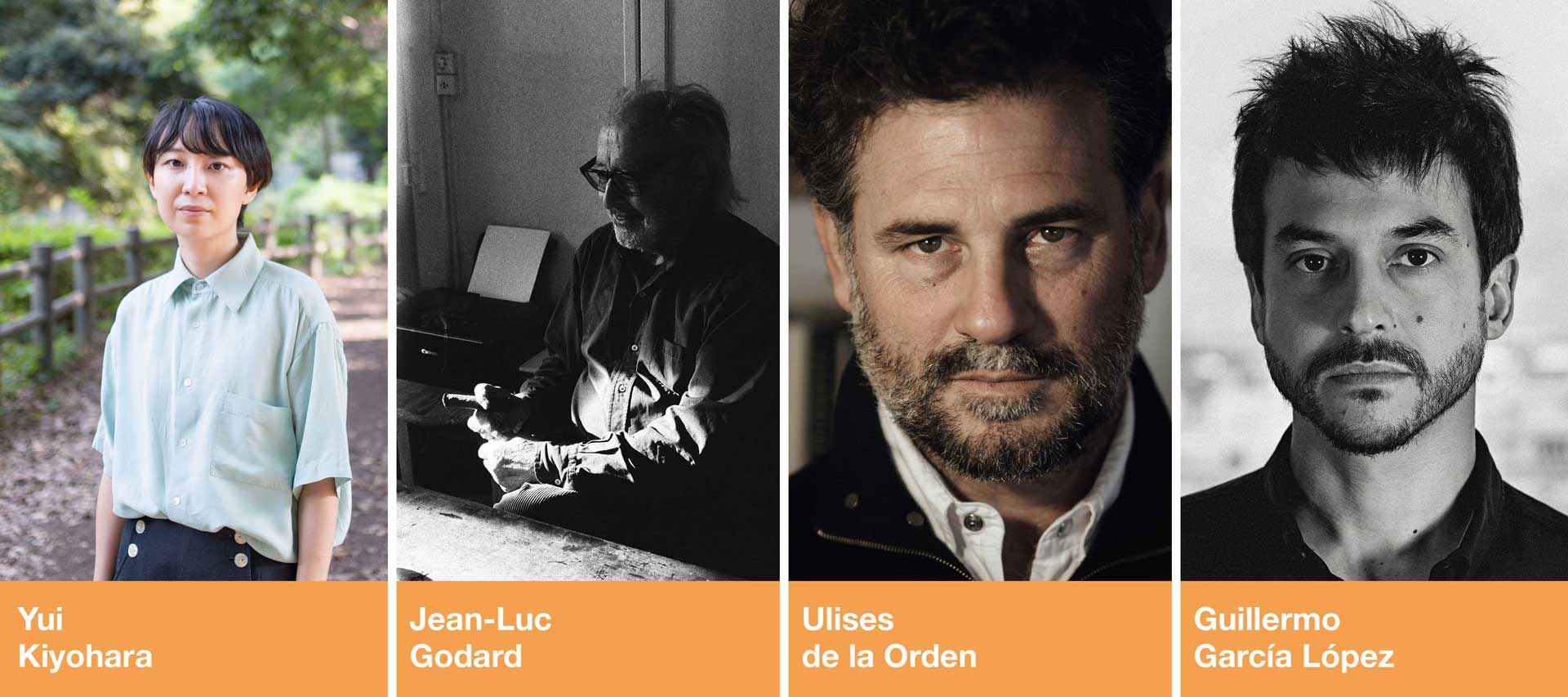
Having shown her shorts at festivals including FID Marseille and Visions du Réel, Éléonore Saintagnan (Paris, France. 1979) now makes her feature debut with Camping du lac, starring the director herself and opening as she rents a bungalow near a lake in which a legendary beast is said to live. The film comes fresh from its participation in the Cineasti del Presente section of the Locarno Film Festival, where it won the Special Jury Prize.
Based on the short film of the same name, Xue yun / Absence is the feature debut from Wu Lang (Yiyang, China. 1991), who took this tale of two former lovers whose fates remain entwined to the Encounters section of the Berlin Festival. The director participates in Zabaltegi-Tabakalera twofold, given that the screening of Absence will be accompanied by that of his short movie Duan Pian Gu Shí / Short Story, to have its premiere in the Orizzonti section in Venice, following a man who dreams of his wife, whom he hasn’t seen for a long time, saying goodbye to him.
Coming from the official competition of the Locarno Festival, at which he won the Golden Leopard for Best Film with El auge del humano / The Human Surge (2016), Eduardo Williams (Buenos Aires, Argentina. 1987) will show his second movie, El auge del humano 3 / The Human Surge 3, a tale set in a strange and mysterious world. The film won the Boccalino d'Oro Independent Critics' Prize for Best Film at Locarno.
A son who has no option but to move back in with his elderly father plays the lead part in Gamopituli Khalkhi / We Are The Hollow Men a short film directed by Rati Oneli (Tbilisi, Georgia, 1977), who was the producer, co-screenwriter and actor of Dasatskisi / Beginning (Dea Kulumbegashvili, 2020), winner of the Golden Shell for Best Film, the Silver Shells for Best Director and Best Actress, and of the Jury Prize for Best Screenplay. Oneli's award-winning hybrid documentary City of the Sun premiered at the Berlinale in 2017.
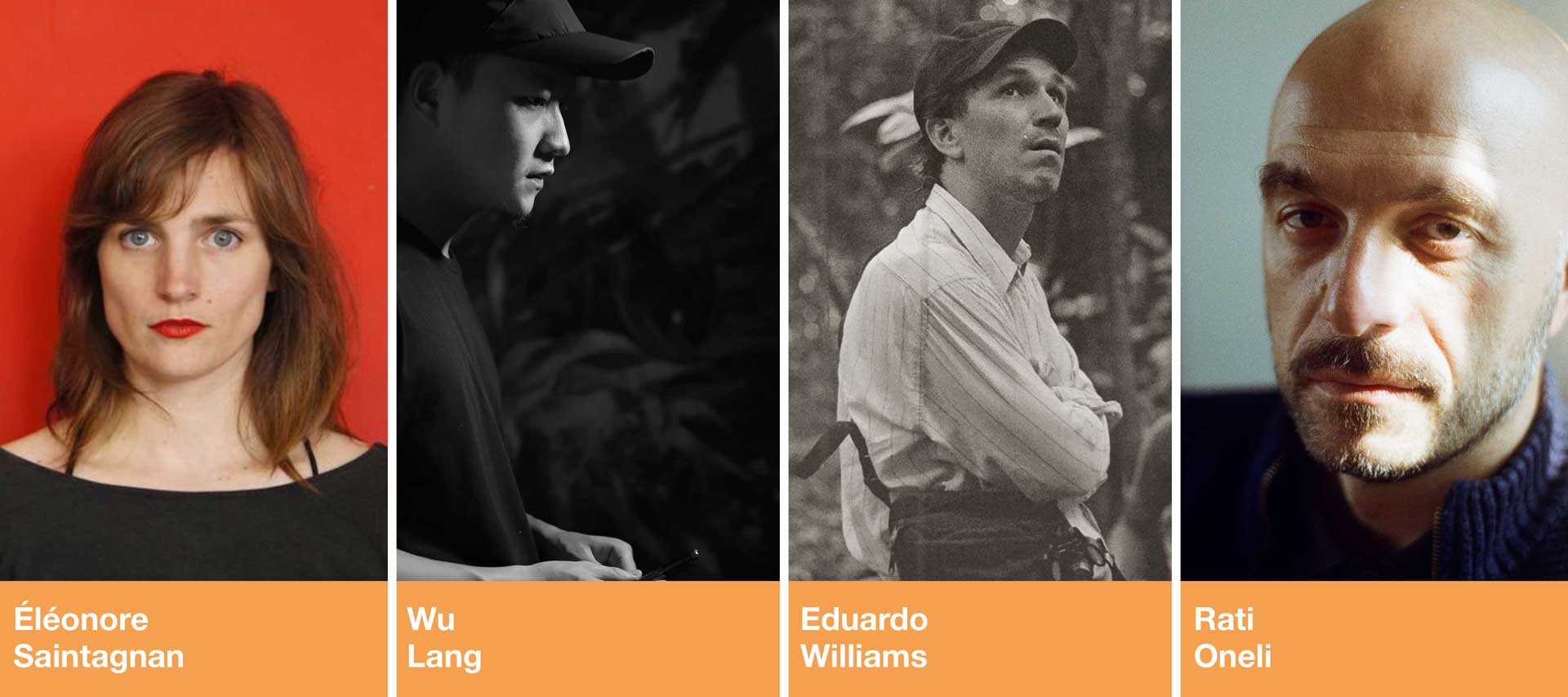
The winner of the Best Film Award in the Encounters section of the Berlinale was Here, in which Bas Devos (Zoersel, Belgium. 1983) follows a migrant whose homecoming is postponed by the possibility of a romance. With his previous features, Devos has screened in other sections of the Berlin festival and at events including the Quinzaine des Cinéastes in Cannes, Rotterdam and Karlovy Vary.
Damien Manivel (Brest, France. 1981) bagged a Special Mention in the French competition at FID Marseille with L'Île / The Island, a tale of friendship and coming of age. The film represents Manivel’s third visit to Zabaltegi-Tabakalera, where he formerly showed La nuit où j'ai nagé / Oyogisugita Yoru / The Night I Swam (2017), co-helmed with Kohei Igarashi and premiered in the Orizzonti section in Venice, and Les enfants d’Isadora / Isadora’s Children (2019), which landed a Special Mention after bagging Best Director in Locarno.
La Palisiada, the directorial debut with which Philip Sotnychenko (Kyiv, Ukraine. 1989) carried off the FIPRESCI Prize in the Tiger competition at Rotterdam Festival, follows two friends, a police detective and forensic psychiatrist, as they tackle a murder investigation.
Rodrigo Moreno (Buenos Aires, Argentina. 1972), who garnered a Special Mention in Horizontes Latinos with El custodio (2006), participates this time round in Zabaltegi-Tabakalera with Los delincuentes / The Delinquents, premiered in Un Certain Regard at the Festival de Cannes. In his latest feature, Moreno tells the story of Morán and Román, two bank employees whose routine is disrupted when one of them robs the branch at which they work.
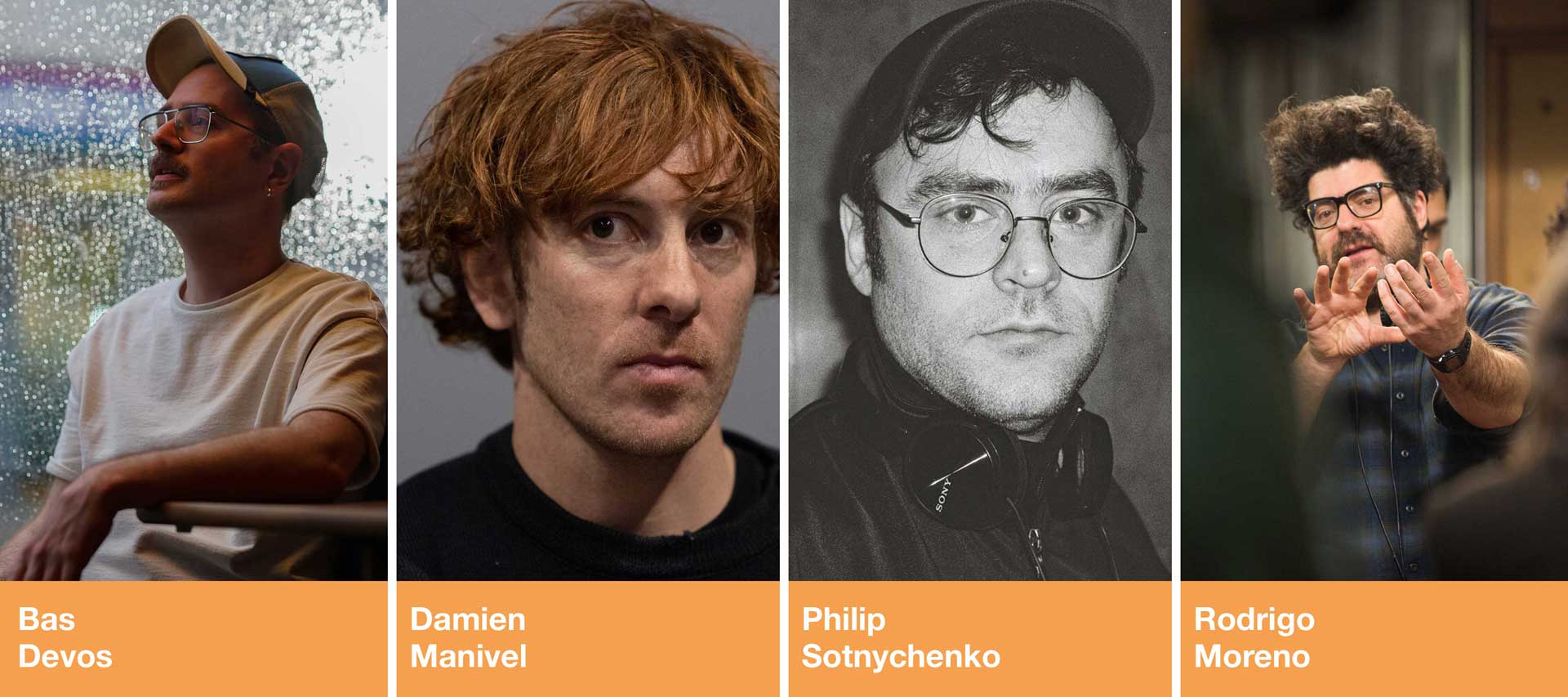
Andres Di Tella (Buenos Aires, Argentina. 1958), who sat on San Sebastian’s Horizontes Award Jury in 2016 and was president of the Nest jury in 2022, will return with his latest work, Mixtape La Pampa, a feature penetrating the landscape of an area whose symbolism is key to shaping the identity of his country. The moviemaker’s previous participations in Zabaltegi-Tabakalera are 327 cuadernos (2015), Ficción privada / Private Fiction (2019) and Diarios (2022).
Zabaltegi-Tabakalera will show another award-winning film from the Berlinale’s Encounters section, Orlando, mi biografía política / Orlando, My Political Biography, winner of four accolades, including the Special Jury Prize. In his feature debut, the writer, philosopher and activist Paul B. Preciado (Burgos, Spain. 1970) takes Virginia Woolf’s novel as his basis to address questions such as gender and non-binary bodies.
Atsushi Hirai (Toyama, Japan. 1989), who participated in Locarno with his first short, Return to Toyama, will bring to Zabaltegi-Tabakalera a work screened in the short film section of the Quinzaine des Cinéastes. Entitled Oyu, the director describes a man’s visit to public toilets in search of a lost object.
Ashmita Guha Neogi (Delhi, India. 1991), who won the Nest Award for CatDog and is currently working on her first feature, will show a medium length-film, Sīlan, about two estranged siblings who contact one another again when their mother dies.
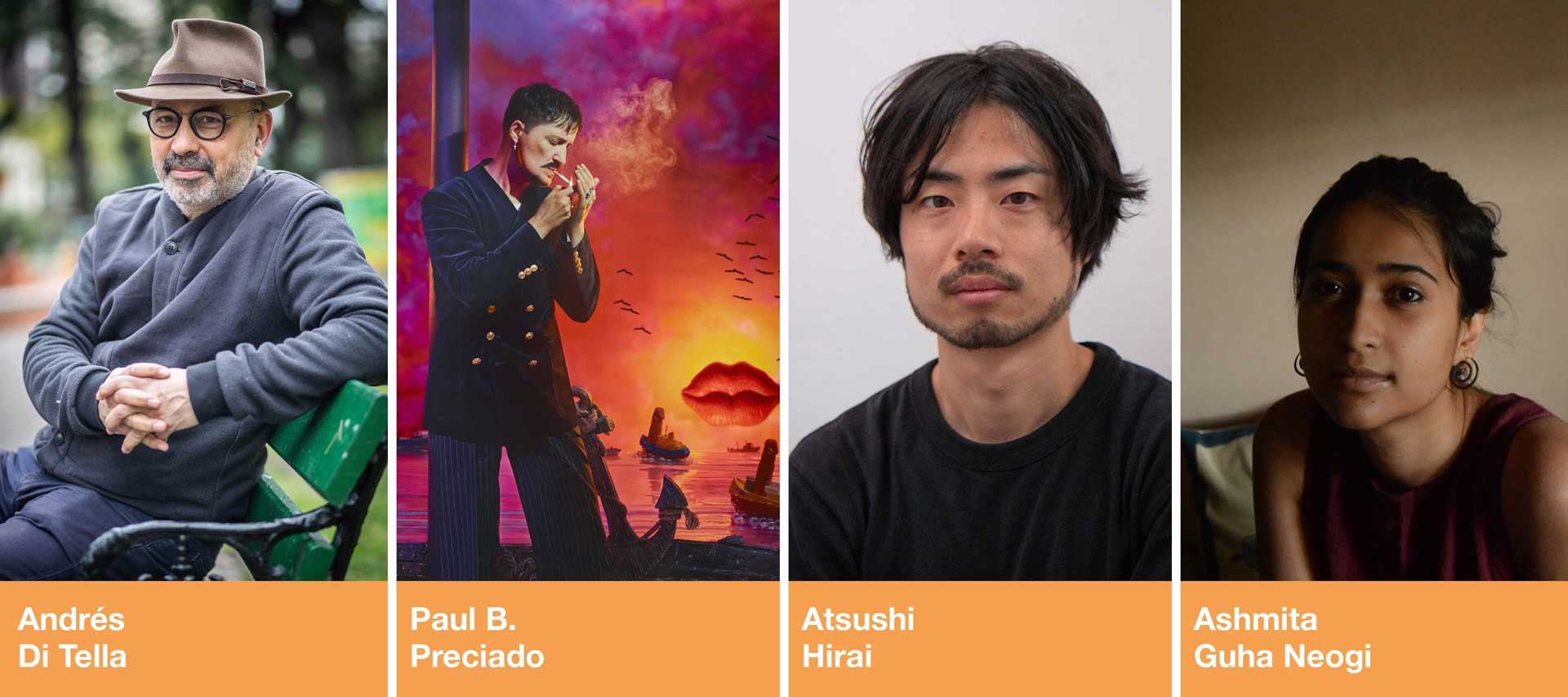
The Belgian director Delphine Girard (Quebec, Canada. 1990) will compete in Zabaltegi-Tabakalera with her first feature, Quitter la nuit / Through the Night, developing the idea for her Academy Award-nominated short Une soeur / A Sister. The film, included in the Giornate degli Autori in Venice, follows three characters scarred by the echoes of violence.
Blazh / Grace is the feature debut from Ilya Povolotsky (Izhevsk, Russia. 1987), who participated in the Quinzaine des Cinéastes with this delicate meditative tale of father and daughter, who travel through a haunting landscape with their movie projector.
The actress and director Shaylee Atary (Rishon Lezion, Israel. 1989) will show her second short, Or panas yachid / Single Light, premiered at the Jerusalem Festival and focused on a female victim of sexual aggression. She participated in the Cinéfondation at the Festival de Cannes with her first short film, Neurim.
Kohei Igarashi (Shizuoka, Japan. 1983) competed in Zabaltegi-Tabakalera with La nuit où j'ai nagé / Oyogisugita Yoru / The Night I Swam (2017), a film screened in the Orizzonti section of the Venice Mostra and co-directed with Damien Manivel. The latter is precisely the producer of the latest work bringing Igarashi back to the section, the short film Suigyo no majiwari /Two of Us, about two childhood friends who spend their holidays together.
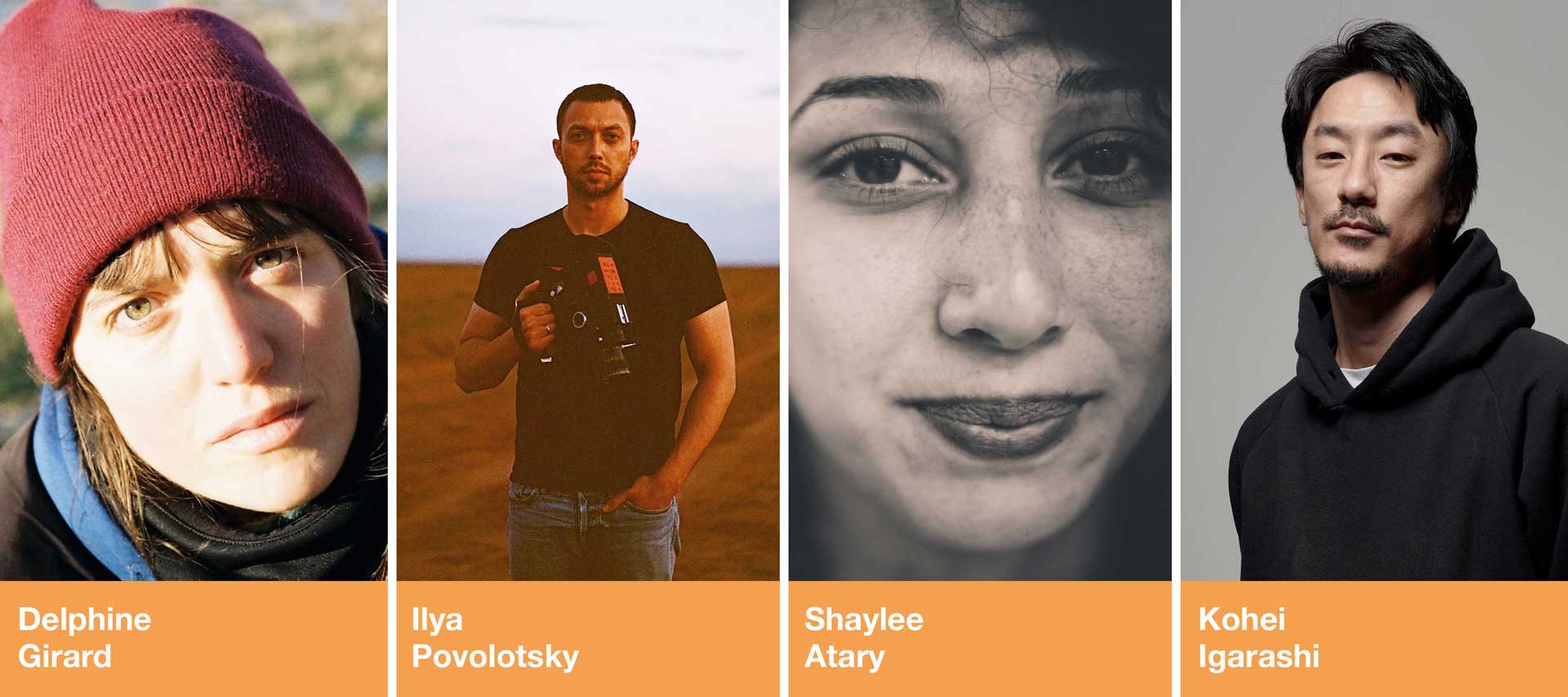
The selection also includes four previously announced titles with Spanish production: Antier noche / Nights Gone By is the feature debut from Alberto Martín Menacho (Madrid, 1986), developed at the Ikusmira Berriak residency and project development programme and premiered at Visions du Réel; Bén Trong Vo Ken Vang / Inside the Yellow Cocoon Shell, directed by An Pham Thien (Vietnam, 1989), is an international co-production, winner of the Caméra d’Or award going to the Best Debut at the Festival de Cannes; Mamántula is a medium-length movie signed by Ion de Sosa (Urnieta, 1981), author of works including Leyenda dorada / The Golden Legend (2019), which screened in Zabaltegi-Tabakalera after competing at the Berlinale; and Contadores is a short film by Irati Gorostidi (Eguesibar, 1988) which participated in the Semaine de la Critique at Cannes and was included in last year’s Kimuak catalogue.
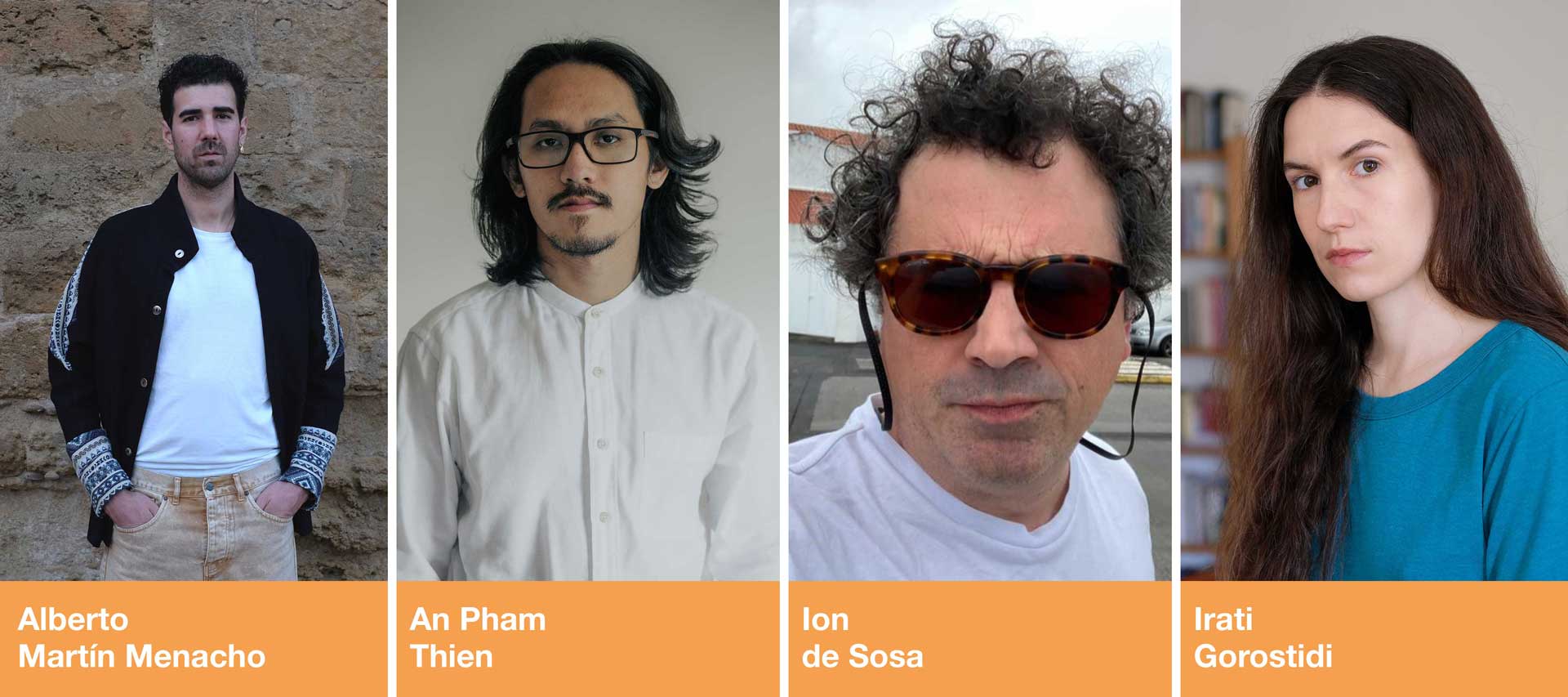
All films in the Zabaltegi-Tabakalera section, organised by the San Sebastian Festival and Tabakalera-International Centre for Contemporary Culture, compete for the Zabaltegi-Tabakalera Award, decided by a dedicated jury. The accolade comes with 20,000 euros for the director (6,000 euros) and distributor of the film in Spain (14,000 euros).
Rejecting the billions of alphabetic diktats to liberate the incessant metamorphoses and metaphors of a necessary and true language, the director returns to the locations of past film shoots, while keeping track of modern times.
A story of three women, weaved in the Tama New Town suburbs of Tokyo, opened in 1971 as the country's largest-ever residential housing project. One person's precious memory resonates through one day in the life of another.
1985, Buenos Aires, Argentina. The trial of the Military Juntas of the last dictatorship (1976/83), accused of crimes against humanity. As in Nuremberg after World War II, the trial is entirely recorded in U-matic tapes. For 90 days, the testimonies of the horror were heard and a final sentence: "Never Again". The defenders and the political and ideological positions of those who supported the dictatorship. In the voice of the victims, the stories of torture and pain. Life and death in the same room. An archive of the past and a film that raises a starting point.
Juan Francisco is twelve years old and lives in a village in southern Spain, surrounded by ancient oak trees and solar panels. Through hunting with greyhounds, he discovers the close relationship between humans and animals. Santi and Antonio are part of a youthful modernity that coexists with the oldest of traditions. Pepa is a young mother who works as a seasonal worker. The choral portrait of this youth reveals a land of hares and donkeys, love stories, fires and rave parties.
In La Cañada, Europe's biggest unregulated settlement, there has been no electricity for over a year. In the firelight, Toni, a 13-year-old boy, discovers that his best friend Nasser is leaving forever. Amongst legends of a possible future, Toni captures the last moments with his friend and looks for a way to stay connected to him.
A reluctant Thien must take the body of his sister-in-law, who died in a freak motorcycle accident in Saigon, and her five-year-old son Dao, who miraculously survived the crash, to their hometown in the countryside. Thien begins a search for his older brother who vanished years ago to hand Dao over to him. On the road, Thien has a series of sublime dreams and enthralling encounters that reignite suppressed memories and forbidden desires. Deep in the labyrinth of these phantom pursuits, Thien battles with his own existential crisis of what is worth living for.
An old camper van passes through an obscure Russian province, carrying a teen girl, her father and a rusty film projector. They've been on the road for a long time, drifting among the eerie picturesque "nowheres". She's used to his melancholy and random women. He puts up with her whims. But everything changes on the way up North, when their world packed into the tight space of the car along with hopes, hurts, fears, and unburied past - eventually explodes.
Éléonore drives west. Her car breaks down in the middle of Brittany, France. There she rents a bungalow in a campsite with a view of the lake, in which, it is said, lives a legendary beast. From mobile home to mobile home, she observes the present, summons the past and lets herself be invaded by fiction.
During the 1978 negotiations for a new bargaining agreement in the metalworking sector, a group of militant libertarians defend their radical stance before their factory workmates while looking on crestfallen as the workers’ movement falls to pieces.
A middle-aged man dreams of his wife who he hasn't met for a long time, saying goodbye to him. He tries to save the relationship when he wakes up.
Different groups of people wander in a dark, rainy and windy world. They are spending time together, trying to escape from their depressing jobs, constantly meandering towards the mystery of new possibilities.
After years of absence and failure, a prodigal son is compelled to return and live with his elderly father. The two men, who are struggling with their conflicting emotions, are forced to deal with their memories, dreams, and fears in a world without the woman who once brought them together.
Stefan, a Romanian construction worker living in Brussels, is on the verge of moving back home. He cooks up a big pot of soup with leftovers in his fridge, to hand out as a goodbye gift to friends and family. As he gets ready to go, he meets a young Belgian-Chinese woman who is preparing a doctorate on mosses. Her attention to the near-invisible stops him in his tracks.
Rosa and her friends have decided to spend the night on "the island", a stretch of beach that has become their realm. It's the last night of the summer, they're turning eighteen, experiencing everything, and saying their goodbyes.
Ukraine, 1996. Five months before the moratorium on the death penalty. Two old friends, a police detective and a forensic psychiatrist, are investigating the murder of a colleague whose widow both of them loved when they were young. Immersed in memories of the past, they unconsciously create a future in which their children will have to live, reaping the fruits of their parents' lost hopes.
Morán is a bank employee in Buenos Aires who dreams up a risky plan to liberate himself and his co-worker Román from the shackles of working life: Morán will steal enough cash from the bank to fund their retirement if Román hides the money for him after he confesses and serves prison time; in three years' time, they'll reunite, split the cash, and never have to work again. Departing to the countryside to fulfill his side of the deal, the less adventurous Román finds himself transformed by Morán’s idyllic vision of economic liberation far from the rigors of urban life. But what is the true cost of freedom?
Mamántula is the boy everyone wants, but he is also, secretly, a giant spider cross-dressed as a human, fruit of a brief encounter in a far-off paradise. In an alternative past of brutalist saunas, never-ending subway corridors and detectives in trench coats and hats, each of Mamántula's lovers succumb to the insatiable lust of blood and semen; yet another thread in the stellar spider's web he is weaving so that he can return to the dimension to which he belongs.
This is the cinematographic diary of an extended trip through the Pampas, on the trail of Guillermo Enrique Hudson, aka William Henry Hudson. Hudson is an enigmatic figure, full of contradictions: he was an Argentine gaucho who became an English writer. He fought in the army against the “savages” but also defended them. He wrote obsessively about his native land, but never returned. In the twists and turns of the road, a combination emerges of documentary speculation, personal memory… and dreams.
Lali is sexually assaulted on a dark road in a Tel Aviv parking lot. Awake, yet unable to move an eye, she stares at a single streetlight. The next morning, Lali wakes up to a reality which she refuses to accept.
In 1928, Virgina Woolf published Orlando, the first novel in which the lead character changes sex in the middle of the story. A century later, the philosopher Paul B. Preciado decides to write a letter to Virginia Woolf: his Orlando has left the fiction and leads a life he could never have imagined.
It is the last day of the year and night falls on the small town of Toyama, Japan. A man goes to the public bath to retrieve a forgotten object. But once inside, the promise of a hot bath compels him to stay.
One night, a woman in danger calls the police. Anna takes the call. A man is arrested. Weeks go by, the courts search for evidence, and Aly, Anna and Dary face the echoes of that night that they cannot leave behind.
In a remote coastal village in western India, two estranged siblings, Rachana and Prakash, reunite for their mother's funeral rites. As they spend the next couple of days together, the man and the woman come closer but with great caution; while one tries to forget, the other tries to preserve the memory of their love.
Sano and Miyata, two childhood friends, are on a trip together in a resort hotel facing the Pacific Ocean. Miyata is devoted to conspiracy theories and he tries to get Sano to believe this idea. But Sano doesn't believe it, and they fight. As Miyata's phone keeps ringing all day, Sano loses patience and takes the call. It was a phone call from Miyata's father, who was saying unintelligible things, probably from dementia. Sano hangs up the phone in confusion and tries to go home with Miyata.
Yu returns to his hometown on Hainan Island after ten years in prison, and tries to rekindle his relationship with his former lover, Hong. Hong's plan to buy an apartment forces them to face predicaments, while their tenacious perseverance empowers them to carry on with their lives and make up for each other's absence.

